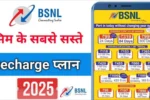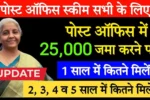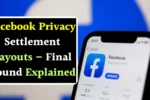The Credit One Bank robocalls lawsuit has finally led to a major settlement worth $14 million, making eligible class members entitled to receive up to $1,000 each. This settlement comes from allegations that Credit One Bank, N.A. violated the Telephone Consumer Protection Act (TCPA) by making unwanted robocalls without proper consent. If you received such calls, you may now claim your share of the payout.
Understanding the Credit One Bank Settlement
The $14 million robocalls class action settlement is designed to compensate consumers whose rights under the TCPA were violated. Between 2014 and 2019, thousands of Credit One Bank customers and non-customers reported receiving automated calls regarding debt collection or account activities. Many of these calls were made without prior consent, which is a direct violation of federal communication laws in the United States.
The settlement not only provides financial relief but also sends a strong message about corporate accountability when it comes to consumer privacy.
Settlement Amount and Distribution
The total fund created is $14 million. Depending on the number of claims filed, payouts are expected to reach as high as $1,000 per person. Unlike some settlements where payments are minimal, this particular case sets relatively high compensation due to the inconvenience and unlawful nature of the robocalls.
Table: Breakdown of Settlement Fund
| Category | Details |
|---|---|
| Total Settlement Fund | $14,000,000 |
| Maximum Payout Per Eligible Claimant | Up to $1,000 |
| Deduction | Attorney fees, court costs, administrative expenses |
| Remaining Fund | Distributed proportionally to approved claimants |
| Claim Deadline | As specified in the court-approved notice |
| Payment Mode | Direct deposit, cheque, or prepaid card (depends on administrator decision) |
This distribution model ensures that the class members receive fair compensation after deduction of standard legal and administrative costs.
Who Is Eligible for the Settlement?
You may qualify for the Credit One Bank robocall settlement if:
- You received one or more automated calls or prerecorded messages from Credit One Bank, between the specified settlement period.
- The calls were made to your personal mobile or landline number without your prior express consent.
- You are not directly employed by or affiliated with Credit One Bank or its subsidiaries.
Even non-customers who received calls by mistake may be eligible, as the lack of prior consent is the central point of violation.
Why the Credit One Bank Lawsuit Happened
The Telephone Consumer Protection Act (TCPA) protects US residents against unsolicited automated telephone calls, faxes, and text messages. Credit One Bank was accused of making:
- Debt collection robocalls without consent
- Calls to reassigned or wrong numbers
- Repeated calls using automatic telephone dialing systems (ATDS)
Since consumer complaints piled up, a class action lawsuit brought attention to the scope of these violations. The settlement avoids prolonged litigation and ensures direct compensation for affected individuals.
How to File a Claim
Filing a claim under this settlement is straightforward. Individuals who have been identified as eligible class members should have received a settlement notice via email or postal mail.
Steps generally include:
- Verify your identity with the reference claim ID from the notice.
- Provide your current contact and payment details.
- Submit supporting documentation if required (in most cases, it is not necessary).
- File the claim online through the settlement administrator or by mail.
Claims must be filed before the deadline. Late or incomplete submissions will not be considered.
Timeline of the Settlement
- Initial Complaint Filed – Consumers report unlawful robocalls.
- Court Approval of Class Action – Lawsuit certified under TCPA.
- Settlement Agreement Reached – $14 million approved by both parties.
- Notice Sent to Class Members – Eligible individuals informed of payout eligibility.
- Claim Deadline – Final date to submit settlement claim.
- Final Approval Hearing – Judge approves settlement distribution.
- Payment Distribution – Funds released to claimants.
This process ensures that fairness and transparency are maintained throughout the case.
Impact of the Settlement
This settlement stands as one of the notable TCPA-related resolutions in recent years. It highlights how corporations should carefully review their outbound communication methods and maintain ethical practices. For consumers, it demonstrates the importance of standing up against privacy violations.
By compensating up to $1,000 per claimant, the Credit One Bank settlement also indicates how severe such infractions are considered under consumer protection laws.
Consumer Privacy and Protection
The Credit One case is not an isolated incident. Robocall-based settlements have increased in the US due to widespread consumer frustration and invasions of privacy. According to reports, billions of robocalls are made nationally every year, making enforcement of the TCPA essential.
Settlements like this reflect:
- The power of collective consumer action
- Growing intolerance for unwanted communication
- Legal reinforcement of privacy rights
Key Takeaways
- The $14 million Credit One Bank Settlement compensates victims of unlawful robocalls.
- Eligible members may receive up to $1,000 each, making it one of the more significant payouts in consumer protection lawsuits.
- Filing a claim requires simple steps but must be done before the official claim deadline.
- This case underscores the importance of consumer privacy and the role of the TCPA in safeguarding US residents.
FAQs about the Credit One Bank Settlement
1. How much money will I receive from the Credit One Bank settlement?
Eligible claimants can receive up to $1,000, depending on the total number of approved claims and deductions for legal expenses.
2. Who qualifies as a class member in this case?
Anyone who received unauthorized robocalls or prerecorded messages from Credit One Bank within the settlement period without providing prior consent.
3. Do I need to provide proof to get my payment?
Most class members identified by automated records won’t need proof. However, supporting documents may be requested if your claim is disputed.
4. When will payments be distributed?
Payments will be made after the final court approval hearing and completion of administrative processing. This typically occurs a few months after the claim deadline.
5. What happens if I miss the claim filing deadline?
Late claims are not eligible. If you do not file before the deadline, you forfeit your right to receive payment under this settlement.






